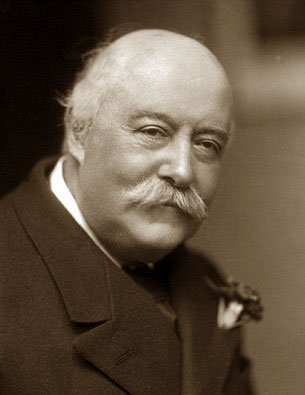After the Pilgrimage with St. Martin’s Chamber Choir
A preview by Betsy Schwarm
After the Pilgrimage: The Journey Home – that’s a program title that one might interpret in several ways. Chronologically speaking, these late May performances by the St. Martin’s Chamber Choir come after its early April program on the theme Songs of Pilgrimage: Camino de Santiago. That program of works related to Santiago de Compostela was then recorded in the studio and should be available this fall on Toccata Classics. Additionally, for many of us, these past two tumultuous years have felt rather like a pilgrimage: a long road of challenges that can be surmounted only by working with one another. In that context, a journey home to familiar times and places must seem encouraging.
Consider also the broader interpretation of ‘pilgrimage’ as one’s life journey, from innocent beginnings through the trials of adult life to a hoped-for eventual arrival at heaven’s door. That meaning imbues the music chosen by St. Martin’s for its season-closing performances May 27 and May 29. The two largest scale works – Songs of Farewell (1918) by Hubert Parry (1848 – 1918) and Songs of the Rubaiyat (1981) by Adolphus Hailstork (b. 1941) – specifically touch on themes of dust into dust and hopes of paradise.
In Parry’s case, he was in the last year of his life, in failing health and knowing his days were numbered. However, it was not just his own life drawing to an end: with World War One in its closing months, Parry cannot have been insensitive to the fact of innumerable human lives lost. As for African American composer Hailstork, he selected a handful of personal favorites from the vast number of verses attributed to Omar Khayyam in the Rubaiyat (published centuries after Khayyam’s passing). As St. Martin’s artistic director and conductor Timothy Krueger observes, “both composers are conscious of the transitoriness of life, and use the most ephemeral of the arts – music – to embody this sentiment in the texts they have chosen.”
So far, one might wonder if this is entirely despairing music. However, Krueger hastens to point out that this is not the case. He sees the Parry songs as “hopeful rather than strictly sorrowful – and even more, as songs of yearning, of longing.” Of the last of the six Parry songs, Krueger does confess that it “has made me cry almost every time I conduct it, as we come to the words near the end “spare me a little…” (i.e., for a little while), which are not set by Parry as pathetic pleading… but with a sort of warm assurance.” All is not tears: there is also comfort at hand.
As for Hailstork, Krueger remarks, “I am quite taken with the texts, most of them expressing a sort of “carpe diem” sentiment – seize the moment, etc… There is a sort of ephemeral nature to the music – brief atmospheric tastes of this and that that quickly pass – evocative perhaps of the nature of the text, about the transitory nature of life.” Attentive listeners are likely to find much nuance and fine craftsmanship in what may be a first experience with Hailstork’s music, perhaps leading to a wish to hear more of his work.
Having built the program around larger scale works by Parry and Hailstork, St. Martin’s wanted to round out the occasion. This proved to be two choral works by Minneapolis-based composer Abbie Betinis (b. 1980) to open the program and lead into the more generously proportioned offerings. The first of these, Long Time Trav’ling, is based upon old shape-note melodies and evokes what Krueger calls a “spiritual/metaphysical element.” That character is also found in Betinis’ From Behind the Caravan: Songs of Hâfez, setting verses by the 14th century Persian poet Khwâja Hâfez-e Shirazi. Here, there is a longing for truth, kindness, and the beloved: wistful themes, but not deeply sorrowful ones. In addition to women’s voices, Betinis also includes two instrumental elements: viola and Persian hand drum. Those added timbres neatly underscore the Middle Eastern flavor of the texts.
In all, Krueger sees an overall trajectory for the program, one suggestive of a pilgrimage – whether a physical one or a spiritual one:
- Long Time Trav’ling: “We’ve been at this a long time, and are exhausted”
- From Behind the Caravan: “Our long journey has engendered a longing for home, for belonging, for peace”
- Songs of the Rubaiyat: “But home is not a place to which we will eventually arrive, despite our longings, but which we must grasp in elusively ephemeral experiences as we encounter them.”
- Songs of Farewell: “Yet we continue to long for home, and – perhaps – one day may attain a sense of peace, of belonging, beyond our current ability to apprehend it.”
A search for home and for peace is a quest with which many of us can identify, especially after the last two years of uncertainty and turmoil. Heartfelt words expressed through balanced, often subtle musical settings: they may not be an antidote, but certainly a balm.
St. Martin’s Chamber Choir’s After the Pilgrimage: The Journey Home will have two performances: one is also available online via livestream, and both occur in the days just before Memorial Day:
- Evening performance: Friday, May 27 at 7:30pm, with pre-concert talk at 6:45
St. John’s Cathedral, 1350 North Washington in Denver; one block south of Colfax
Live concert and livestream
- Matinee performance: Sunday, May 29 at 3pm, with pre-concert talk at 2:15
St. Andrew’s United Methodist Church; 9203 South University in Highlands Ranch –
a short distance south of C-470
Live concert only; no livestream on Sunday May 29
Tickets and logistics available here: https://www.stmartinschamberchoir.org/after-the-pilgrimage/ Betinis, Hailstork, and Parry: two living American composers and one from turn of the 20th century England. In the hands of the St. Martin’s Chamber Choir and music director Tim Krueger, it should be a touching and fulfilling journey.












